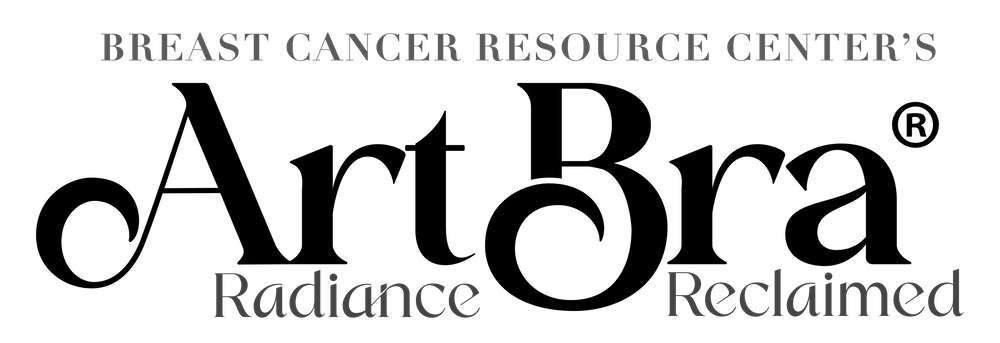As part of our October “Metastatic Monday” blog series, we will be publishing stories from our clients and their loved ones who are (or have been) faced with a metastatic breast cancer diagnosis. Metastatic Breast Cancer, also known as Stage IV, is cancer that has spread outside of the breast to other organs such as bones, liver, lung or brain.
This week’s blog is authored by Deena Byers. Deena is a wife, a mother and the owner of PenCharrette, online seller of Mont Blanc pens and pen accessories. She is an author, world traveler and former Apple Goddess of Marketing. Deena was diagnosed with stage IV breast cancer in early 2007 and joined the support group the IV League later that year. She’s known for wearing funky wigs, sharing pictures of her head after brain surgery and for being a marketing superstar.

By: Deena Byers, client of Breast Cancer Resource Centers
When I entered the room, the women were laughing and talking about what they did over the weekend, like any group of women getting together. “Come on in and join us!” they said to me. I felt comfortable right away.
After the informal introduction, we checked in. One by one, we took a 10 minute sand hourglass, tipped it up, and gave an update on what’s happening with our cancer, the treatments, the drugs, how we’re feeling, and whether we need any kind of help. When the sand moved to the bottom, we passed the hourglass to the next person. Each listened intently when the other spoke. No one interrupted, made comments, or asked questions during the first part of check-in. Afterwards, we had open discussion and asked each other questions. This was our IV League support group – my lifeline. But unlike the college ivy-leaguers, this is a non-elitist group that no one aspires to join.
In 2007, I received the diagnosis of Stage IV Breast Cancer. Knowing there is no Stage V, my anxiety heightened. Hadn’t I just finished seven intense rounds of chemo fifteen months earlier in 2004? Why had all those rounds of toxic chemo — Taxotere, Cytoxan and Adriamycin (the Red Devil) – and weeks of radiation and surgeries not killed the cancer? I thought I’d defeated the Grim Reaper. I didn’t want to repeat that dreaded experience again.
My Stage IV breast cancer was ER/PR+ and HER2+ In other words, my body was sensitive to the naturally occurring female hormones – estrogen and progesterone – and also over producing the HER2 protein. My breast cancer type can simply be called Triple Positive, though no type is simple.
My oncologist suggested I join the Breast Cancer Resource Centers of Texas (BCRC) Stage IV breast cancer support group called the IV (ivy) League. I thought, “I don’t want to be in a group of women who looked like they were dying.” That meant I had to face reality and admit to myself that I actually qualified for an end-stage group like this.
Our group used to meet at Casa de Luz, a restaurant in central Austin. Now we meet Soma Vida, a serene meeting space on East 11th. One of the first things we say to new members is, “Welcome to the group no one wants to join. We are all in this together and are here to support each other.”
During the first couple of meetings, I didn’t understand some of the words the ladies were saying – words like paracentesis, necrosis, and neuropathy. They also talked about drugs unfamiliar to me. Already out of my element, having left the world I knew best, the corporate world, I felt like an alien that had entered a planet with a whole new language. The word “cancer” scared me. Foreboding terms and strange sounding drugs overwhelmed me.
Eventually – sooner than I could ever have predicted – I learned the cancer-speak. I learned the medical terminology and effects associated with advanced breast cancer. I learned more than I ever wanted to know about cancer drugs like, Xgeva, Xeloda, Zometa, Zofran. I found it ironic that many of the advanced breast cancer drugs start with the last letters of the alphabet.
Our group meets weekly and we are connected at the heart, serving as lifelines for each other when we need support or a shoulder to lean on. Whether or not we have friends and family, we find it comforting to have each other. Of the seven women who attended the first day I joined, five have died. In the seven years since then, I have known at least fifty who have left us. I’m blessed and grateful for the close bonds I formed with several of them and the invaluable insights I’ve gained. They have taught me to accept death as a part of life and how to die gracefully.
In-group, it feels safe to ask frank questions, express our fears, hopes and even tell irreverent jokes about cancer that would be inappropriate for someone without cancer to say to us. We are as different from each other as people who do not have cancer. Some are optimistic, others not. Some have extreme effects from a drug that others don’t. Some are demonstrative when they talk, others more subdued. Once a lady commented, “I wish living in cancer land was like being in Disneyland. Cancer is so unpredictable. None of it makes sense.”

One of our former guiding lights, Jeanne, a brilliant professor, did not like to use the timer to check in. She would simply lay it horizontally on her lap and talk until she finished. She wanted more time than the allotted ten minutes. Because she knew so much about cancer, none of us minded. We learned so much from her. Jeanne also had the rare distinction of not only having breast cancer, but ovarian as well, and she got ovarian cancer after she’d lost her ovaries. We couldn’t believe this could happen. But it did to Jeanne.
I try to share tidbits that add levity to our situation. One day while talking about the cancer in my brain, I said, “I asked my oncologist if the brain is the most important organ.” He replied, “It depends on who you ask. A man or a woman.” That elicited laughter. Another time I said, “I may forget my American Express Card when I leave home. But I never leave home without my Cancer Card.” It works in places where they don’t take American Express, like waiting in lines at the post office, in stores, almost anywhere. At times, I turn my wig half way around. When someone in front of me notices, that person often motions for me to go to the front of the line.
In-group, we also hear ladies say things like, “I’ve called in hospice.” “My sense of humor is gone.” “I hate wondering which day I’m going to die.” “My oncologist said I’ve used all available drugs for my type of cancer. None are working any more.” “I’ve picked out my final resting place. Thank you all for being part of my life.” When I hear comments like these, I have mixed emotions of love, helplessness, anger and sadness. I’m upset because I think of the people who’ve said to most of us, “Anyone could get hit by a bus at any moment,” as if that involuntary action of fate should make those of us with cancer feel better. The difference is that we are standing in the middle of the road. We live with the looming thought that the bus will most likely strike us sooner rather than later. A moving bus . . . yes . . . faster, cheaper and easier than living with aggressive cancer.
We feel normal at group, though our “normal” is about dealing with our changing diagnosis, treatments, anxieties, fears, and death. We’ve learned to accept the reality that we’ll always be in treatment until the end. I wouldn’t be honest if I didn’t admit there have been times when the chemo, effects of the drugs and losing my friends wear me down.
I lived from scan to scan. When I received my quarterly pathology reports, my fingers trembled and my heart pounded fast as I opened the envelope. I quickly skimmed the results looking for what has become my favorite word in the English dictionary – ‘Unremarkable’ – a positive word which means no progression since the last scan. The MRI and PET scans have become more reliable for me than my cancer markers.
In May 2008, the report was thicker than usual and I intuitively knew it wasn’t good. The cancer had spread to my brain. I had four lesions and opted for stereotactic surgery. I had ten-minute radiation sessions over ten consecutive days. My cancer reoccurred in my bones three times and in my brain again. I had more bone and brain radiation.
In December 2011, I had brain surgery. My neurosurgeon took pictures of the inside of my brain, as we had requested. The mass, by the way, resembled a piece of cauliflower. The surgeon had said to me, “While I was in there, I looked for any loose screws and there were none.” My husband Brent and I finally realized our brain surgeon had a sense of humor. Brent had jokingly said to him before the surgery, “You may want to check for any loose screws.”
We were happy to learn the mass was not new cancer, rather scar tissue from radiation treatments. This phenomenon occurs in only 5% of those people who have their brain cancer radiated. I breathed a huge sigh of relief because if the lesion was cancerous, there could be cancer in other parts of my brain.
 Now almost ten years after initial diagnosis, eight of those with Stage IV, I feel great. My current chemo cocktail is a groundbreaking drug, Kadcyla, called the smart bomb, and Zometa. Both these drugs target my specific breast cancer. I believe I am staying alive longer than the five year survival rate after my Stage IV diagnosis due to new drugs, ongoing chemo treatments, the BCRC’s sponsored-IV League Support Group, a proactive oncologist, daily exercise, healthy foods, the love from my husband, family and friends, and of course, my new dog, Dante.
Now almost ten years after initial diagnosis, eight of those with Stage IV, I feel great. My current chemo cocktail is a groundbreaking drug, Kadcyla, called the smart bomb, and Zometa. Both these drugs target my specific breast cancer. I believe I am staying alive longer than the five year survival rate after my Stage IV diagnosis due to new drugs, ongoing chemo treatments, the BCRC’s sponsored-IV League Support Group, a proactive oncologist, daily exercise, healthy foods, the love from my husband, family and friends, and of course, my new dog, Dante.
I count my blessings. I will never give up or stop treatment. I know if I do, I would die. And then, it would be hard for me to live with myself.
For information regarding metastatic breast cancer, please visit www.mbcn.org.
BCRC’s Locally Pink campaign offers you the chance to make a big difference – today – for women like Deena who are living with metastatic breast cancer.
Rethink Pink & MAKE A DIFFERENCE.

If you or someone you know is facing metastatic breast cancer and could use our support, please visit our website or call our helpline at 512-524-2560. To speak with someone directly about BCRC’s IV League, please contact Patient Navigator Dianna Petrick at dp******@**rc.org / 512.901.6644.


